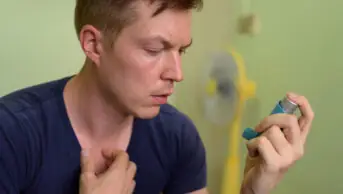Many students have difficulty getting hospital work experience. Here is a description of some of my experiences, and my “ground rules” on seeking out opportunities, applicable to pharmacy and beyond.
Rule 1: ask
My first experience within hospital was not due to filling out an application or having anyone “on the inside”. I just asked for some shadowing.
Anna Murphy is a respiratory consultant pharmacist at Glenfield Hospital. After seeing her talk at a local practice forum meeting, I was eager to learn more from her. I emailed asking for a day’s shadowing, and she was kind enough to grant me the opportunity.
I attended a multidisciplinary team meeting, whereby different healthcare professionals collaborate to improve the care of a patient. Anna was answering queries from both nurses and doctors, always ready with a recommendation. Anna made me realise just how valuable and needed pharmacists are to any team.
Another time I used the “ask” rule was at the Royal Marsden pre-registration talk, given by the very enthusiastic teacher practitioner pharmacist, Jaina Parmer. Her enthusiasm was catching, and I emailed asking for shadowing at the cancer specialist hospital. Initially, I received no response. I then proceeded to call her. After several times of trying (pharmacists are busy people), I finally managed to get a hold of Jaina, and explained that I would be really grateful for any opportunity to come and see Royal Marsden. I thanked my lucky stars when she invited me for a day’s placement.
On the day I learned about the clinical trials being held at the hospital, I witnessed a nurse administering chemotherapy, and I went on a ward round with a cancer specialist pharmacist.
So ask anyone and everyone. Be proactive.
Rule 2: apply
My university asked if students were interested in attending a respiratory pathway at Russells Hall Hospital. It involved multidisciplinary ward rounds, observation in out-patient clinics, pulmonary rehabilitation and a smoking cessation seminar.
To apply, we were to send an email stating why we wanted the place. I used my previous interest with Anna Murphy to emphasise why I wanted the place. This can work for you too — show genuine interest and people pick up on it.
Most hospitals offer summer placements. Even for those that don’t, it’s worth asking if you could leave your details with them. An example of this was Newcross hospital. It didn’t offer placements but later on it got in touch with those who were previously interested, asking if they’d like a day placement.
So, even if it’s not actively advertised, apply anyway, and apply to them all.
Rule 3: be curious and follow your interests
I would suggest when you are on placement; ask (that magic word) if you can do anything extra. Hospitals show you plenty of different things anyway, but asking shows you’re interested. My placement at Birmingham and Solihull Mental Health NHS Foundation trust was really enhanced with this. I got the chance to see electro-convulsive therapy (ECT) at the Oleaster — the national centre for mental health. Despite starting at 6am, it was an incredible experience.
I also met some pharmacists at HM prison Winson Green, who have some interesting medicine rounds to do. I got involved with a Prescribing Observatory for Mental Health-UK (or POMH-UK) audit. POMH-UK help health care professionals and organisations improve their prescribing practice. This activity looks great for your CV as it shows you have already begun developing your professional skills. It’s also great practice for a hospital pre-registration, where you may have to complete an audit.
Rule 4: you can useful experience elsewhere
Although the choice often seems to be “hospital or community”, many of us don’t even consider industry. Yes, it is tough to get a placement with GlaxoSmithKline or AstraZeneca, but you never really know what opportunities are out there. During this summer I had the chance to work with Clinova, a relatively new pharmaceutical company. My advice to those looking for placements is seek out any opportunity you want.
Lastly, don’t give up after the first rejection. Out of a hundred things you apply for, you may only succeed once. Be persistent.


